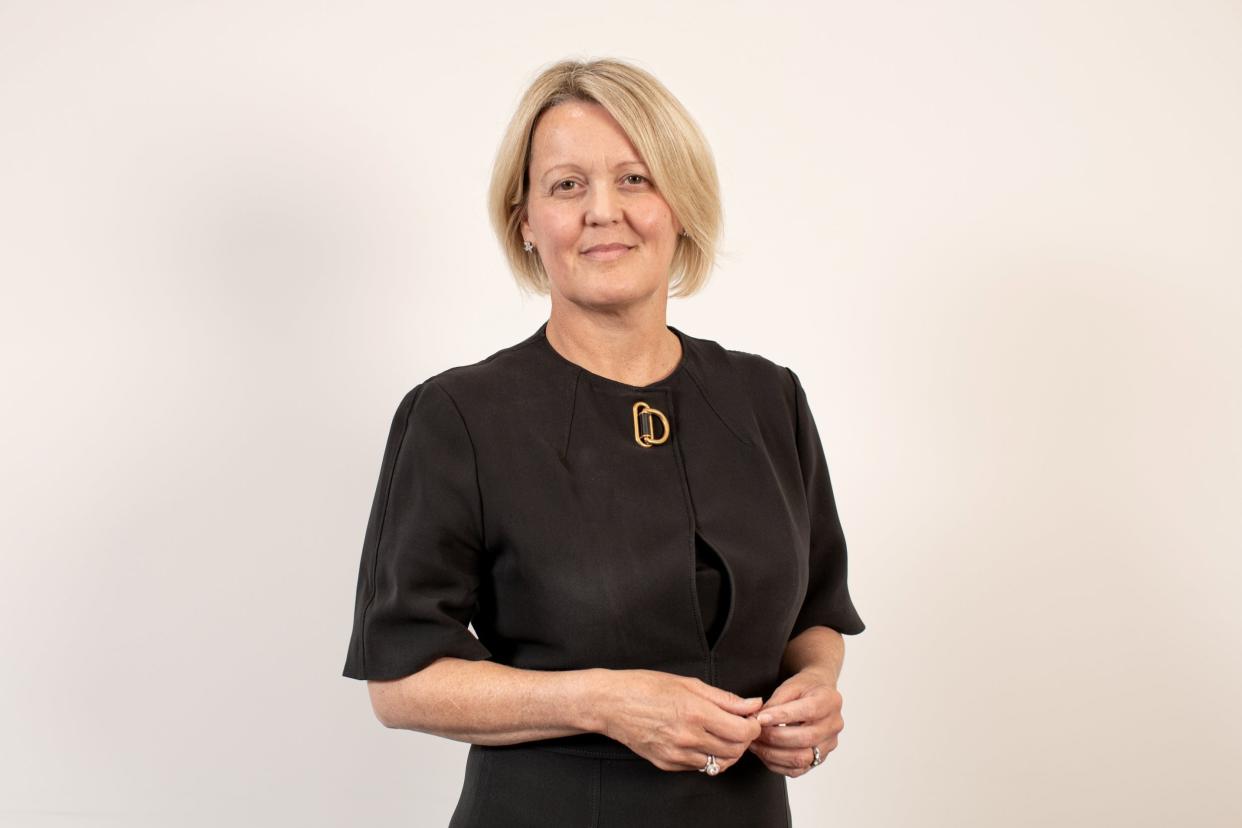Alison Rose's appointment at RBS does very little to advance women's equality

RBS has confirmed that Alison Rose will assume the role of chief executive from November. Rose will become the first female boss of a top four British bank and her appointment brings the total number of female FTSE 100 CEOs back to the heady heights of 2017 when the tally stood at... seven. That’s right: seven. As in one more than six, one less than eight and very definitely not in double digits.
Over the last decade, there has been a lot of focus on the need for more equality and diversity in the boardroom. In 2010, Dame Helena Morrissey founded the 30% Club in an attempt to propel female representation at board level out of the single digits. Her campaign has been successful, with the figure now standing at 29.9 per cent.
Whilst Morrissey’s achievement and the appointment of Rose should not be overlooked, it does beg the question, how the hell can progress be so slow?
A recent report from the Chartered Institute of Professional Development showed that there are more men named Steve or Stephen occupying CEO positions in the FTSE 100 than there are female CEOs. There are also as many Daves / Davids as there are women and those women who make up that 7 per cent of FTSE 100 CEOs earn just 4.2 per cent of total pay.
This is not just a problem at an executive level – a YouGov poll survey for Young Women’s Trust last month found that one in eight employers said they would be “reluctant to hire women who may have children” – despite the fact it is illegal to make hiring decisions on this basis. And when making a decision relating to career progression or promotion, one in seven employers said their business mulls over the woman being a mother or if she is pregnant – again, this is illegal. The escalating costs of childcare mean that many women walk away from their careers as they can often wind up in a situation where they are paying to go to work.
Combine this depressing reality with the fact that women are more likely to take on caring roles than men (58 per cent of 6.5m unpaid carers in the UK are women). Women aged 45 to 54 are twice as likely as other carers to have reduced working hours as a result of caring responsibilities. These statistics show that women continue to suffer at every stage of their career due to circumstances out of their control.
April 2019 marked one year since the introduction of government rules regarding pay disclosure and yet there is not a single sector in the United Kingdom’s economy where women are paid more than men – there isn’t even a sector where pay is at parity. A quarter of companies have a pay gap of over 20 per cent in favour of men.
I started my career in journalism reporting on the business sector and now over ten years later, it feels as though we have barely moved at all – oftentimes it feels as though we are taking one step forwards and two or three back.
As Cheryl Giovannoni, chief executive of the Girls’ Day School Trust, said at the “Preparing Young Women for a World of Radical Change” summit this week, “If you look at the statistics, girls outperform boys at school, they outperform them at university and they start to fall behind very early on in their careers.” Women are less likely to ask for a pay rise or for a promotion, especially if they don’t consider it a nailed-on certainty that they would get it.
Giovannoni made the point that teachers need to “work really hard on … giving girls the confidence to see their self-worth...whether they are confident enough to ask for what they believe they’re worth is not always the case.."
http://players.brightcove.net/624246174001/default_default/index.html?videoId=5837728067001
Support free-thinking journalism and attend Independent events
But other research shows that women do ask for raises, and they still don’t get them. Whatever way you look at it, women are not coming out on top. A couple of years ago, I was asked to take on a more senior role when a male colleague left the company for which I then worked. It was a step up in terms of responsibility as well as the size of the team I managed and I was thrilled to get a pay rise to reflect this. And yet, they paid me just 56 per cent of what my male predecessor earned. Upon learning of this discrepancy, I asked for the issue to be resolved. There was no difference in our contributions to the business. It was not resolved and so I left the company.
Any improvement or progression has to be a combined effort from women and men, parents and teachers, employers and mentors. Young women need to have confidence instilled in them from a young age, through education and the success of their own hard work and application. The world needs to stop seeing young women with self-belief and a certain amount of competence as a threat, self-important or a cheaper form of labour. We need to stop seeing mothers as distracted or less dedicated, simply because they’re not always physically in the workplace.
Then hopefully, in the not-so-distant future, we will see a pipeline of women leading more of the biggest companies in the country – not just seven…

 Yahoo News
Yahoo News 
